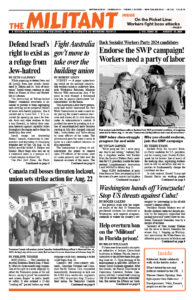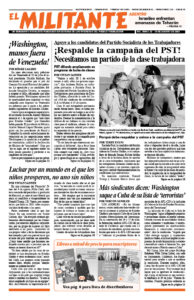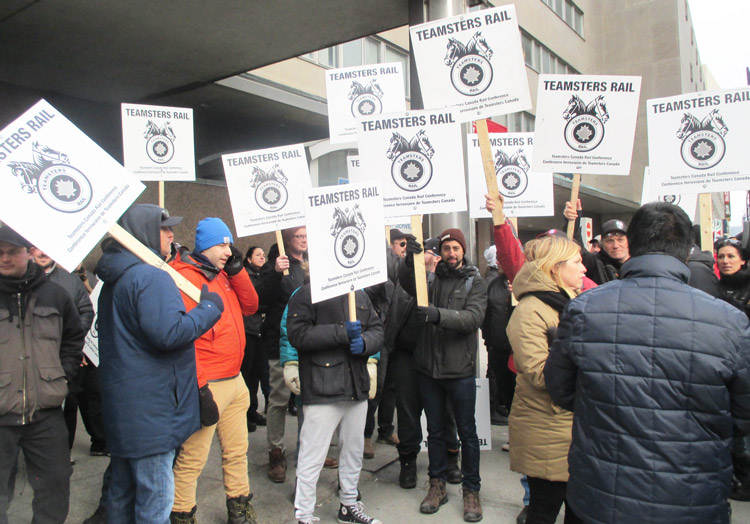MONTREAL — The Canadian Industrial Relations Board Aug. 9 finally lifted its three-month-long suspension of the right to a work stoppage by either the Teamsters union or the rail bosses, saying it posed “no immediate and serious danger” to public health or safety. It also ordered a 13-day “cooling off” period before any work stoppage could start, meaning a strike could begin Aug. 22.
Canada’s two cross-country railroads, Canadian National and Canadian Pacific Kansas City, responded immediately, threatening to lock out the 9,300 train conductors, engineers and CPKC dispatchers Aug. 22 unless their union, the Teamsters Canada Rail Conference, agreed to binding arbitration. They also announced plans to begin embargoing dangerous goods and progressively stopping other freight traffic. Canadian National is calling on Canada’s minister of labor to intervene.
“From the very beginning, rail workers have only ever sought a fair and equitable agreement,” Paul Boucher, president of Teamsters Canada Rail Conference, responded. “Unfortunately, both rail companies are demanding concessions that could tear families apart or jeopardize rail safety. Rail workers have fought for a safer and more humane industry for decades, and we will not accept moving backwards.”
“CPKC wants to gut the collective agreement of all safety-critical fatigue provisions. The end result will mean train crews would be forced to stay awake even longer, increasing the risk of derailments and other accidents,” the union said. “CPKC has also failed to address the understaffing of rail traffic controllers.
“CN aims to implement a forced relocation scheme, which would see workers ordered to move across the country for months at a time to fill labour shortages. CN also wants to extend workdays in all provinces west of Ontario.”
Rail workers welcomed the labor board’s decision to recognize their right to strike. “It took too long. It’s been months since our collective agreement has expired,” CN train conductor Juan Sebastian Santamaria told the Militant. “I’m looking forward to the strike.”
“Their ‘offer’ is scandalous,” Alexandre Jacob, a Canadian National train conductor for five years, said. “We have to oppose any anti-strike legislation. We have to go on strike.”
The workers’ contract expired Dec. 31. Teamsters Canada Rail Conference members have voted to strike by over 98% twice since.
“Very good news! It was about time. I’d rather they reach a tentative agreement, but if it comes down to a strike, I will participate and bring solidarity,” said Canadian National conductor Giulio Archambault.
Some 110 business groups and chambers of commerce across Canada, organized by the Canadian Chamber of Commerce, sent a letter to Prime Minister Justin Trudeau, his minister of labor and the minister of transport, urging them to prevent a work stoppage. While shedding crocodile tears over the well-being of citizens, their real goal is defending their bloated profits.
The letter asks the government to hold an emergency meeting with business groups as soon as possible, to discuss government action “preventing any potential disruption.”
“Looks like we have some bargaining power,” Eugen Bernard, a Canadian National conductor for nine years, commented. “The company’s proposed forced arbitration is disgusting, but we have a lot of leverage.”
Philippe Tessier is a conductor at Canadian National and a member of the Teamsters union.


